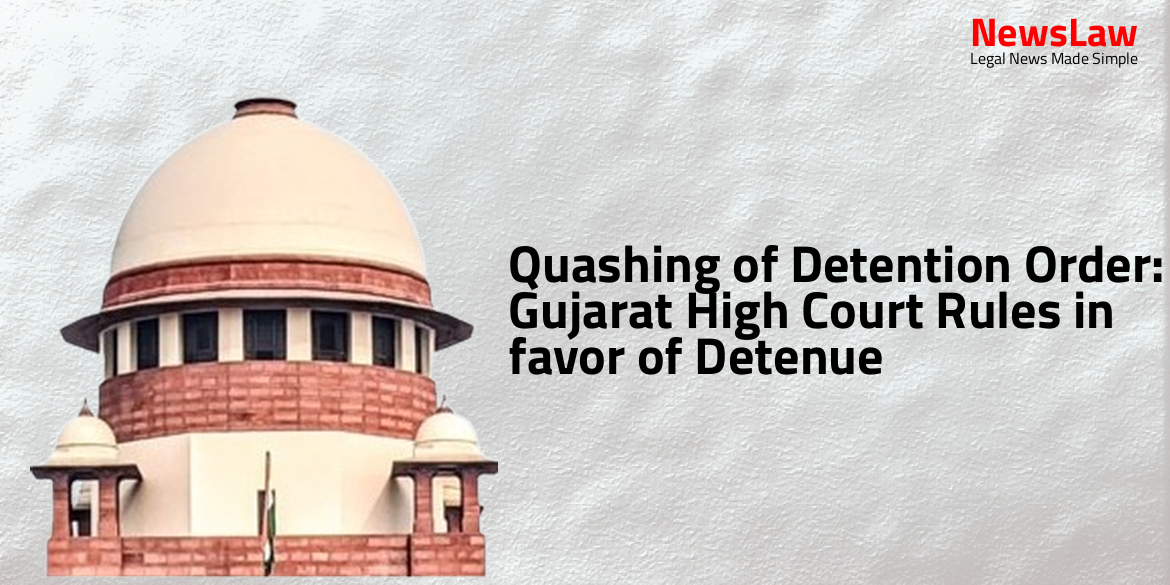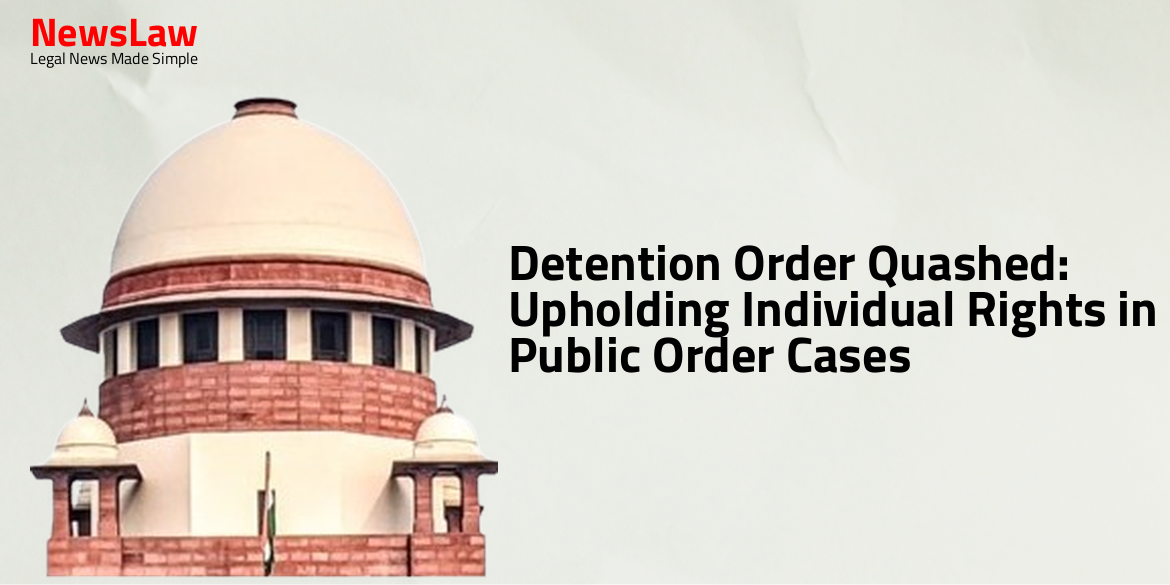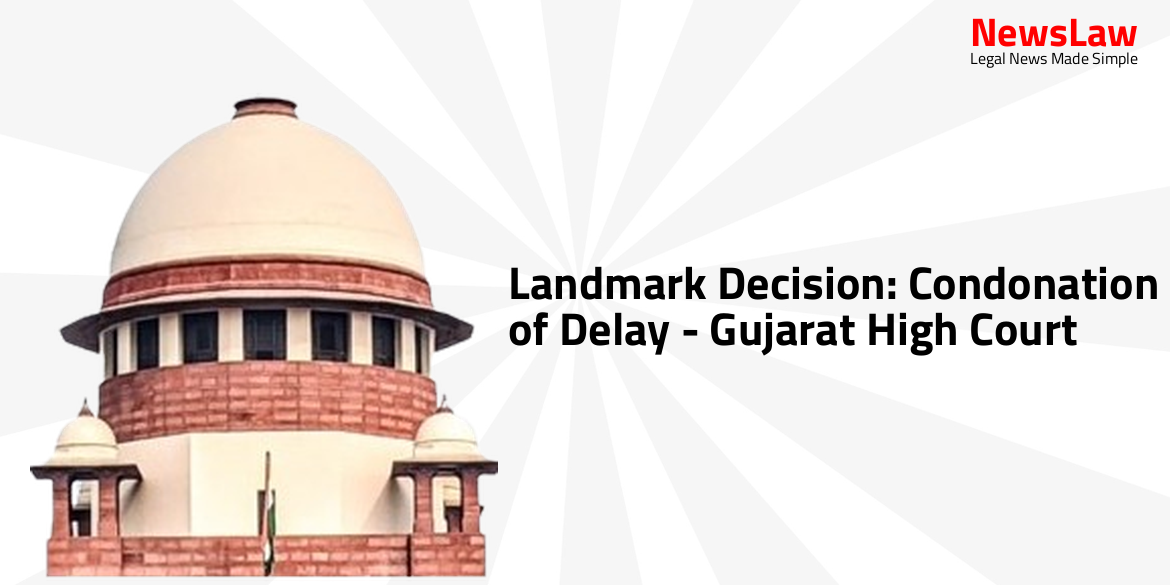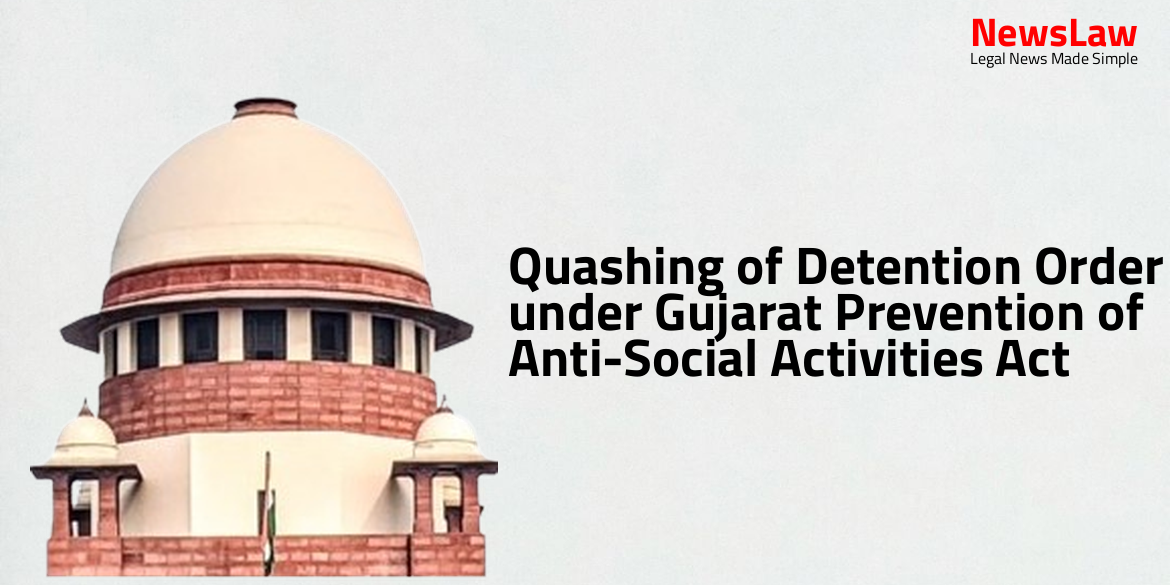The Gujarat High Court has recently passed a crucial judgment in the case concerning the detention order under the Gujarat Prevention of Anti-social Activities Act. The court’s ruling favored the detenue, emphasizing that the activities in question did not impact public order. This landmark decision sheds light on the distinction between law and order issues versus public order concerns. Stay tuned for more updates on this significant legal development.
Facts
- The petitioner has challenged the legality and validity of the order executed upon him under the Gujarat Prevention of Anti-social Activities Act, 1985
- The petitioner is currently in jail as a result of the impugned order
- The order falls under Section 2(b) of the Act of 1985
Issue
- Consideration of facts and submissions by the parties
- Determination of the issue regarding the order of detention passed by the Detaining Authority
Arguments
- The Detaining Authority passed the impugned order based on the antecedents and past activities of the detenue to prevent him from acting in a manner prejudicial to the maintenance of public order in specific areas.
- The advocate for the detenue argues that the grounds of detention do not relate to public order but are a matter of law and order since the alleged offenses have no bearing on public order.
- The advocate states that the activities of the detenue may be prejudicial only to the maintenance of law and order, not public order.
- The State Counsel argues that the detenue is a habitual offender whose activities have a significant impact on society.
- There is a debate on whether the detenue’s actions directly affect public order or are limited to law and order issues.
Analysis
- The detaining authority failed to prove that the alleged activities of the petitioner as a bootlegger affect public order.
- Reference to four criminal cases in the grounds of detention, where the petitioner was granted bail for prohibition offenses.
- The authority wrongly concluded that the detenue’s activities are prejudicial to public order based on these offenses.
- The offenses committed by the petitioner do not impact the maintenance of public order, and the authority’s satisfaction is not justified.
- Acts constituting the offenses did not disrupt the even tempo of community life or cause public panic.
- Physical altercation alleged by witnesses involving the petitioner does not affect public order.
- The distinction between ‘law and order’ and ‘public order’ is crucial for determining the scope of the Preventive Detention Act.
- Merely a disturbance of law and order is not enough for action under the Preventive Detention Act; it must be a disturbance that affects public order to come within the scope of the Act.
- Cases of assault or injury to specific individuals may constitute disorder but not necessarily public disorder.
- The contravention of any law affects order, but for it to affect public order, it must impact the community or the public at large.
- Detention orders based on prohibition offences alone may not suffice for action under the Preventive Detention Act.
- Preventive detention under the Act can only be imposed if the individual’s activities as a bootlegger have or are likely to have an adverse effect on public order.
- Section 3(4) of the Act outlines the conditions that must be met for preventive detention to be applied.
- The individual cannot be detained preventively unless their bootlegging activities pose a threat to public order.
- The maintenance of public order is a key consideration in determining the need for preventive detention under the Act.
- The order of detention cannot be upheld as it lacks sufficient evidence to show that the detenue’s activities have adversely affected public order.
- The material on record is insufficient to prove that the detenue’s alleged activities have or are likely to affect public order adversely.
- The subjective satisfaction of the detaining authority based on the available material cannot be considered legal, valid, or in accordance with the law.
Decision
- The order dated 11.01.2024 passed by the respondent authority has been quashed.
- The petition has been allowed and the detenue is directed to be set at liberty forthwith, if not required in any other case.
- The rule is made absolute accordingly.
Case Title: HARESH @ LALO RATILAL BHAGORA THRO HEMINABEN D/O JIVAJI ASODA Vs. STATE OF GUJARAT
Case Number: R/SCA/3915/2024



